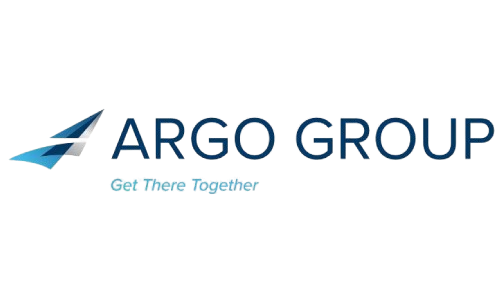Argo
Financial Services 501+ employees Sep 10, 2024 2:22:59 AM Topgrading %

Since 1957, Argo has worked with independent agents, wholesale brokers and retail brokerage partners to become a leader in the international specialty insurance marketplace.
When Mark Watson took over the company in 2000, the stock had tanked. Watson approached Brad Smart at a YPO presentation saying, "I want to create a successful company."
Number of Employees : 1300
Industry : Global Insurance
Highlights :
- Improved from 51% to 96% A Players hired and promoted in management (AVP and above)
- 15%+ compounded stock performance since Topgrading
- Sales increase from $200 million in 2000 to $3 billion in 2020
Solutions and Results
Argo contracted Topgrading to:
- License the Topgrading software platform
- Train all managers in the hiring methodology
- Over time, certify internal trainers for Topgrading train-the-trainer
- Conduct Topgrading Interviews of candidates for senior positions, where the cost of a hiring mistake was extremely high
- Periodically assess and coach the top team
Use of the Topgrading methodology led to an improvement in Argo's hiring and promoting from 51% to 96% high performers. The improved talent drove the company's success, leading to sales increase from $200 Million in 2000 to $3 Billion in 2020, and 15%+ compounded stock performance since Topgrading began.
"Argo is more successful as a company because Topgrading has resulted in a higher percentage of A Players."
- Mark Watson, CEO
Quotes from Interview with CEO Mark Watson
- We’re a capital intensive company, but a lot of our capital is intellectual capital, our people, and so much of our success is making sure we have the very best people that we can have.
- We use Topgrading at all levels of the organization. It starts with me. I’ve done Topgrading Interviews on every single employee that reports to me directly — even incumbent employees on my management team. I expect all managers to do the same with their subordinates and cascade it all the way down through the organization.
- Topgrading taught us to measure the costs of all mis-hires, and of course we’ve had a few, even after launching Topgrading. The financial costs and the time wasted are always way above what we initially thought. That exercise motivates us to stick with the Topgrading disciplines.
- With Topgrading, you don’t need as many people. Instead of 12 on a team you might just need 8 people – and at least 7 are A Players. Not only are As more productive individually but they work better as team players. And A teams are happier – they like working with one another and like being in a successful company, where there are growth opportunities.
- Just because somebody is a C Player in the role they're in – assuming they’re committed to the company – doesn’t mean that you can’t retool them into another role in the company where they would be an A Player. We use Topgrading methods to assess and coach a lot of people, and not only have we transferred some Bs and Cs into jobs where they became As, a few Bs and Cs were coached and became As in their current job.
- We Topgrade in all the countries we’re in. Initially there is resistance but as soon as they see the results, managers everywhere get on board.
